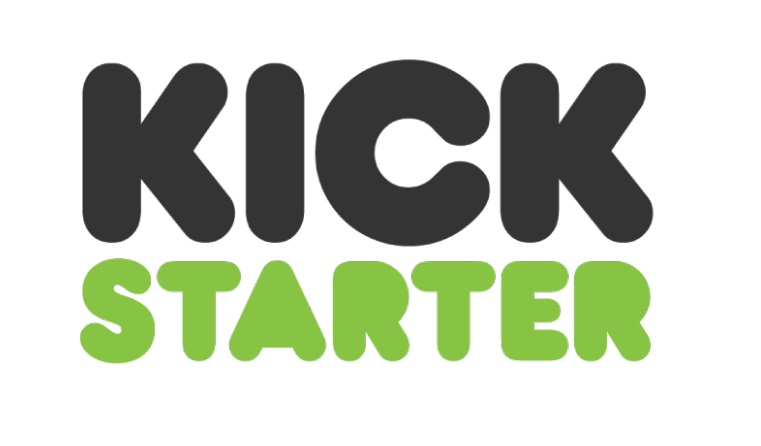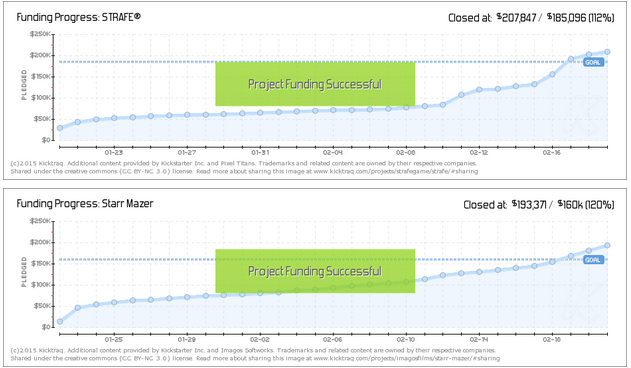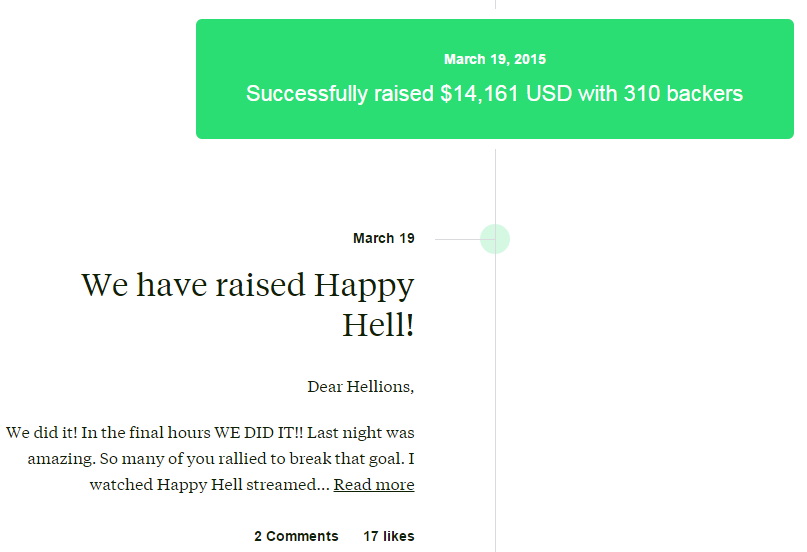February alone saw a great many campaigns (Strafe, Starr Mazer, This is the Police, Project Scissors: NightCry) which had their funding practically stall out after a strong start. More apparent, however were the many projects which failed to achieve smashing success in the first few days or weeks as we’ve come to expect from campaigns by acclaimed developers or series. What each had in common was the fact that they required incredibly heavy funding pushes in the final week to succeed with only a couple days left on the clock. In the past, this 13th hour funding seem relegated to campaigns which were not top dogs, but still intriguing enough to inspire a following and last-minute rally.
Campaigns like Strafe and Starr Mazer, for example, both inspired immense attention both by critics and general gamers. Their great visual design, awesome marketing savvy, and engaging gameplay concepts drew tons of backers. Yet, both barely reached their goal instead of flying through stretch goal after stretch goal. Project Scissors: NightCry, despite being in the horror genre and with a legendary staff, also had to fight incredibly hard to barely reach the goal. Fighting for Kickstarter success by the most popular campaigns still feels like an alien prospect – but it’s the current reality of the situation.
The trend may even be worsening at a quick pace. For the month of March many campaigns succeeded with just a day left on the clock. Happy Hell, Orion Trail, and Tahira: Echoes of the Astral Empire all had something awesome to bring to the table in one way or another. Each featured a polished campaign and excellent concepts for where they wanted to take their project post-Kickstarter. Yet, each saw funding within the last 48 hours. This is immensely stressful for everyone involved: Campaign leads, backers, and onlookers who wish to simply wait to play eventually. Not only is it stressful, but it may be the result of a vicious cycle.
Even though it does not harm you if a Kickstarter project fails (you’re not billed for a project which doesn’t meet its funding goal), many people simply don’t want to back a campaign if it doesn’t appear successful. If they perceive it to be receiving too little funding they are more likely to skip on it rather than back. Yes, logically it makes sense to back a game you really want when it is in desperate need of funding. But that’s not how things actually play out. Instead, we’re psychologically inclined to go with “winners.” We are often more willing to back something which has already accrued tons of backers and money because it makes us feel secure. A successful campaign will happen – and all these people will be right there with you to ensure it.
Of course there are always backers out there who purposefully seek to help fund projects which truly require it (presumably many of our readers fall into this category!) but in general the opposite appears true. One only needs to look at the rampant success of Double Fine Adventure as an example. They did not require millions of dollars – at least, not according to their pitch they didn’t. People also didn’t need to back the campaign to simply get the game as it would eventually be available on Steam. Folks really wanted to be a part of something historic. In a far more amusing but depressing example, you can instead look at Potato Salad as a viral joke that folks wanted to be a part of just to say they were.
Despite all this doom and gloom chat it doesn’t meant that every single campaign will face this highly stressful late-funding trend. One recent example is Quiplash by the developers behind You Don’t Know Jack. It raised its funds thanks to a devoted fan following very early on and that’s great! It just isn’t likely to be as common in the future. For example, despite well-known PC developer SSI creating a campaign that fans likely went gaga over, Seven Dragon Saga was ultimately canceled due to not trending high enough to reach its goal. As their president recognized, as we also acknowledge, name recognition is no longer enough. Similarly, despite massive press attention and existing fanbase, Toejam and Earl: Back in the Groove barely achieved its goal in the final four days.
Does this mean the era of Kickstarter is finally over and everyone should run away screaming? No. Crowdfunding still has a definite space in the gaming community and will continue to fund many great upcoming titles. It’s just that times have changed. What once worked may not be nearly as effective now. The very first Kickstarter video games campaign was for a title named High Strangeness. With no photos and a very brief description a campaign like this would have almost no chance today. Expectations have grown over the years and this is an ever-evolving process.
Do not fear Kickstarter (or any other crowdfunding site) if you’re looking to receive funding for your game. However, do your homework and know what the marketplace is currently like. Backers: If a campaign you really adore is struggling then consider backing it or actually sharing it with a friend or two. It may not save the campaign but inspire the developers to regroup and try again another time if folks show support in their first go around. We at Cliqist will continue to track these trends and provide insight into them with our monthly recaps and post-campaign analysis articles.







I actually feel less inclined to back projects that are doing well. Either that or I just naturally get excited about projects that other people don’t….
Funnily enough even though I back “losers”, all the campaigns I’ve backed so far have succeeded in the end. (granted I haven’t backed that many yet)
Great article!
[…] to our recent numbers and analysis on Cliqist, you certainly seem to be on the mark about Kickstarter’s “gold rush” […]